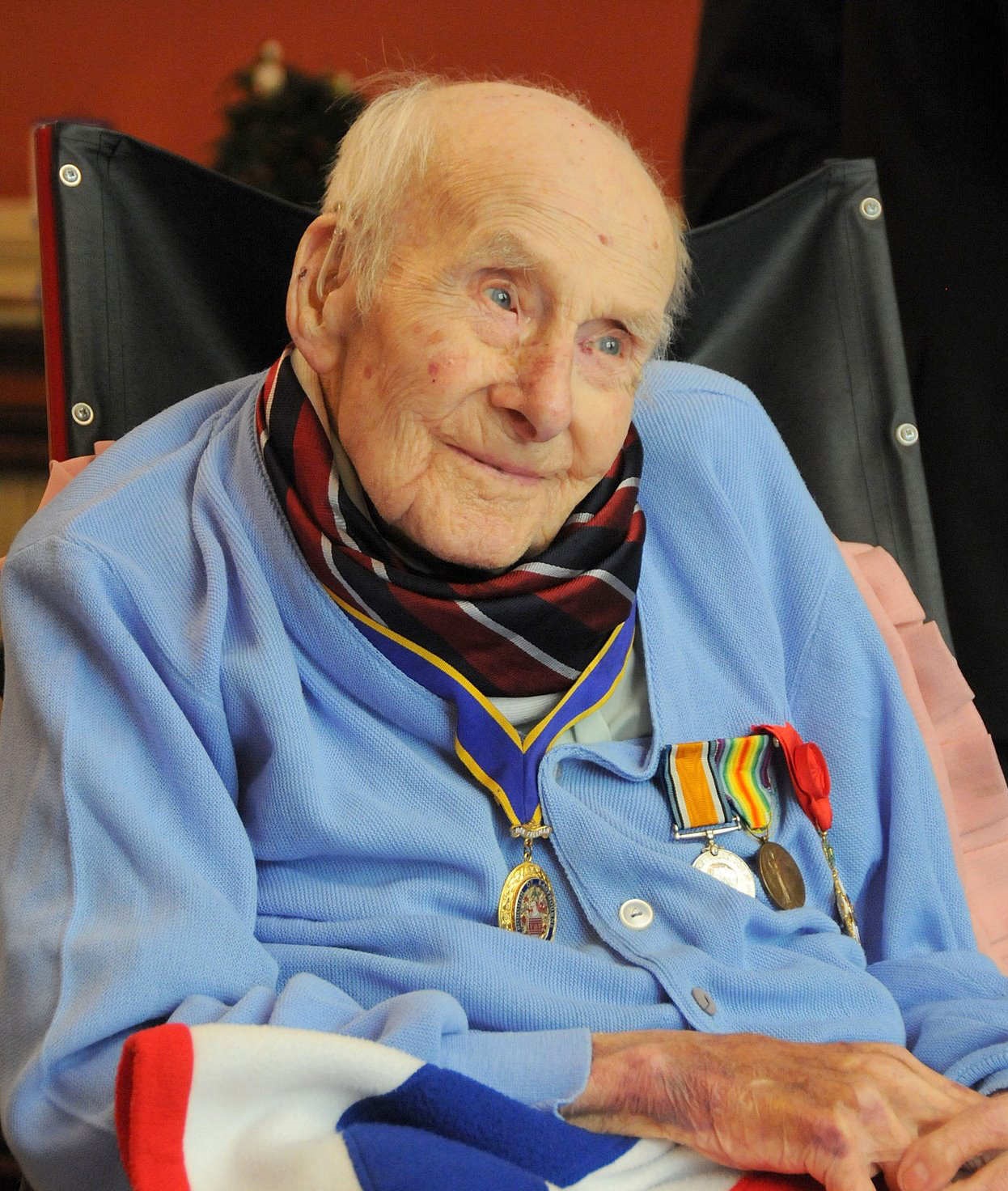Henry William Allingham was an English supercentenarian. He is the longest-lived man ever recorded from the United Kingdom, a First World War veteran, and, for one month, the verified oldest living man in the world. He is also the second-oldest military veteran ever, and at the time of his death was the 12th-verified oldest man of all time.
Supercentenarian Profile
Henry Allingham
✔ Age Certified by LongeviQuest
BIOGRAPHY
Henry William Allingham was born in Clapton, County of London, England, UK, on 6 June 1896. Next year, his father died of tuberculosis at the age of 29. Following his death, the family moved to his maternal grandparents. In 1905, his mother remarried.
In August 1914, he tried to join the army as a despatch rider, but his mother persuaded him that his place was at home looking after her. However, after his mother died in 1915, aged 42, Allingham enlisted with the Royal Naval Air Service (RNAS). He became formally rated as an Air Mechanic Second Class on 21 September 1915, and was posted to Chingford before completing his training at Sheerness, Kent.
After graduation, Allingham was posted to the RNAS Air Station at Great Yarmouth where he worked in aircraft maintenance. On 13 April 1916, King George V inspected the air station and its aircraft. Allingham later reported disappointment at narrowly missing an opportunity to speak to the king.
During the preparations for the Battle of Jutland, Allingham was ordered to join the naval trawler HMT Kingfisher. Allingham’s responsibilities included helping to launch this aircraft. Although the Kingfisher was not directly involved in the battle, Allingham still rightfully claimed to be the last known survivor of that battle and could recall “seeing shells ricocheting across the sea.” In September 1917, Allingham, by then an Air Mechanic First Class, was posted to the Western Front. On 3 November 1917, he was posted to the aircraft depot at Dunkirk, France, where he remained for the rest of the war, on aircraft repair and recovery duties. He recalls being bombed from the air and shelled from both the land and the sea.
Allingham met Dorothy Cator in Great Yarmouth, Norfolk in 1918. They married the same year in Romford, when she was 24 and he was 22. They moved to Eastbourne, Sussex in 1961 and remained married until she died there from acute and chronic lymphatic leukemia. They had two daughters, Betty (1920–2023) and Jean (1923–2001).
During the Second World War, Allingham was in a reserved occupation and worked on a number of projects. Perhaps his most significant contribution was the design of an effective counter-measure to the German magnetic mines. During his Christmas lunch in 1939 he was called away to help design a system that would neutralise the mines and open the port of Harwich, Essex. Nine days later, he had successfully completed the task.
RECOGNITION
On 6 December 2005, following the death of 111-year-old Jerzy Pajaczkowski-Dydynski, he became the oldest living man in the United Kingdom, at the age of 109.
On 10 November 2006, following the death of 111-year-old Maurice Floquet of France, he became the oldest living man in Europe, at the age of 110.
On 8 February 2007, following the death of 110-year-old Antonio Pierro, an Italian-born American, he became the oldest known living veteran of the First World War, and the third-oldest living man in the world.
On 2 November 2007, at the age of 111 years, 147 days, Allingham surpassed the final age of George Frederick Ives (1881–1993), becoming the longest-lived member of the British Armed Forces.
ATTRIBUTION
[crp limit=’4′ ]

